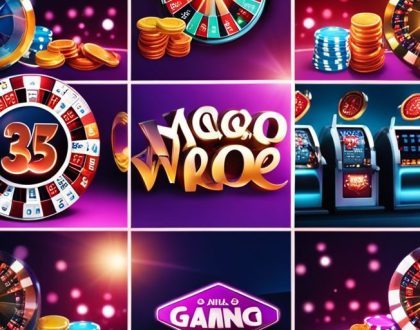Securing Your iGaming Casino License

Many individuals and companies seeking to enter the lucrative world of online gambling understand the importance of obtaining a iGaming casino license. This important document not only grants legal permission to operate a casino but also ensures compliance with strict regulations and helps establish credibility with players and financial institutions. Without a license, a casino risks facing severe penalties, including hefty fines or even being shut down. However, successfully obtaining and maintaining an iGaming casino license can be a complex and rigorous process, involving thorough background checks, financial audits, and demonstrating a commitment to responsible gambling practices. In this blog post, we will explore the key steps and considerations to help you navigate the process of securing your iGaming casino license effectively.
Understanding iGaming Licenses
For individuals or businesses looking to enter the iGaming industry, understanding the nuances of iGaming licenses is crucial.
Types of iGaming Licenses
There are various types of iGaming licenses that can be obtained depending on the jurisdiction you operate in. These include online casino licenses, sports betting licenses, lottery licenses, and poker licenses. Each type of license comes with its own set of regulations and requirements. Any individual or company wishing to operate in the iGaming space must carefully consider which type of license is most suitable for their business.
| Online Casino Licenses | Sports Betting Licenses |
| Lottery Licenses | Poker Licenses |
| Key requirement: Compliance with anti-money laundering regulations | Key requirement: Responsible gambling initiatives |
| Regulated by: Gaming authorities | Regulated by: Regulatory bodies |
| Benefits: Access to a global market | Benefits: Revenue generation |
Benefits of Having a License
iGaming licenses offer a range of benefits to operators, including legitimacy, consumer trust, and access to legal markets. By obtaining a license, operators can demonstrate their commitment to operating ethically and within the bounds of the law. This can help attract customers who are looking for a safe and secure gaming experience. Additionally, having a license can help mitigate the risk of legal issues and penalties that may arise from operating without proper authorization.
Types of Licenses
Having a valid iGaming license can provide operators with a competitive edge in the market. It not only allows them to legally offer their services but also opens up opportunities for partnerships with other licensed entities. Furthermore, licensed operators can benefit from financial advantages, such as access to banking services and payment processors that may only work with regulated businesses. Operators who obtain a license are also able to participate in industry events and conferences, network with other professionals, and stay up to date with the latest trends and developments in the iGaming sector.
The Application Process
Eligibility Criteria
Little is more important in the iGaming industry than ensuring that only qualified operators are granted licenses. The eligibility criteria set by regulatory bodies are stringent and require applicants to meet specific requirements to be considered for a license. This includes background checks, financial stability, and a proven track record in the industry.
Documentation and Requirements
Requirements for applying for an iGaming casino license can vary depending on the jurisdiction. However, common documentation includes detailed business plans, financial statements, compliance reports, and background checks for all key personnel involved in the operation. The application process can be time-consuming and complex, but meeting all requirements is crucial for obtaining a license.
A crucial aspect of the documentation and requirements is the need for transparency and compliance. Regulatory bodies have a zero-tolerance policy for any discrepancies or fraudulent information in the application process. Accuracy and thoroughness are key to a successful application.
Regulatory Compliance and Legalities
Adhering to iGaming Regulations
Despite the excitement and potential profitability of the iGaming industry, operators must navigate a complex web of regulations and legal requirements to secure and maintain their casino license. One misstep in compliance can lead to severe consequences, including hefty fines and license revocation.
Best Practices in Legal and Financial Compliance
iGaming operators must prioritize legal and financial compliance to ensure a smooth operation and build trust with regulators. Implementing robust KYC (Know Your Customer) and AML (Anti-Money Laundering) protocols are fundamental to meeting regulatory requirements and preventing fraud and financial crimes. Aligning with global standards such as GDPR (General Data Protection Regulation) and PCI DSS (Payment Card Industry Data Security Standard) also adds layers of security to protect sensitive data.
For instance, conducting regular internal audits to assess compliance levels and identify any gaps is crucial in maintaining a strong legal and financial framework. Engaging legal counsel specializing in iGaming regulations can provide expert guidance on navigating the intricate legal landscape. Furthermore, partnering with reputable financial institutions that understand the unique challenges of the iGaming industry can streamline compliance efforts.
Choosing the Right Jurisdiction
Popular iGaming Licensing Jurisdictions
Choosing the right jurisdiction for your iGaming casino is a crucial decision. Popular choices for iGaming licensing include Malta, Curacao, Gibraltar, and the Isle of Man. Each jurisdiction has its own regulations, tax implications, and reputation in the industry.
Evaluating Jurisdictional Pros and Cons
Pros and Cons of Popular iGaming Licensing Jurisdictions
| Malta | Curacao |
| Pros: Strong regulatory framework, EU membership, solid reputation | Pros: Low cost, quick licensing process |
| Cons: Higher fees, stringent due diligence requirements | Cons: Perceived as less reputable, weaker regulatory oversight |
When evaluating jurisdictional pros and cons, it is important to consider factors such as regulatory oversight, reputation, tax implications, and the ease of obtaining a license. Choosing the right jurisdiction can impact your casino’s credibility, operational costs, and potential for growth.
Maintaining Your License
Ongoing Obligations and Audits
Unlike the initial application process, securing an iGaming casino license is just the beginning of your responsibilities. Once you have obtained your license, you must adhere to strict ongoing obligations and be prepared for regular audits to ensure compliance with regulations. This includes maintaining accurate records, implementing responsible gambling measures, and keeping up with any changes in the regulatory environment.
Renewal and Revocation Issues
On an ongoing basis, you must stay updated on the renewal requirements for your iGaming casino license to avoid any issues that could lead to revocation. Any delays in submitting necessary documentation or failure to comply with regulatory standards can jeopardize your license. It is crucial to address any potential renewal or revocation issues proactively to maintain your license and avoid costly penalties.
Your iGaming casino license is a valuable asset that requires diligent attention to detail and proactive management. Failure to meet ongoing obligations, such as record-keeping or responsible gambling measures, can result in costly fines or even license revocation. Stay informed of renewal requirements and be prepared to address any issues promptly to ensure the continued success of your iGaming operation.
Final Words
Conclusively, securing your iGaming casino license is a crucial step to ensure the legality and trustworthiness of your online casino. By meeting the strict regulatory requirements and obtaining the necessary licenses, you can provide a safe and secure gaming environment for your players. Make sure to conduct thorough research, prepare all required documentation, and adhere to all regulations to successfully obtain your iGaming casino license. By following these steps, you can establish a reputable and compliant online casino that attracts players and stands out in the competitive iGaming industry. Stay informed about the latest regulatory changes and best practices to maintain your license and ensure the long-term success of your online casino.
Recommended Posts

Exploring Europe’s iGaming Frontier Best Betting Brands
April 26, 2024

Quick Look at iGaming Software Providers
April 26, 2024

